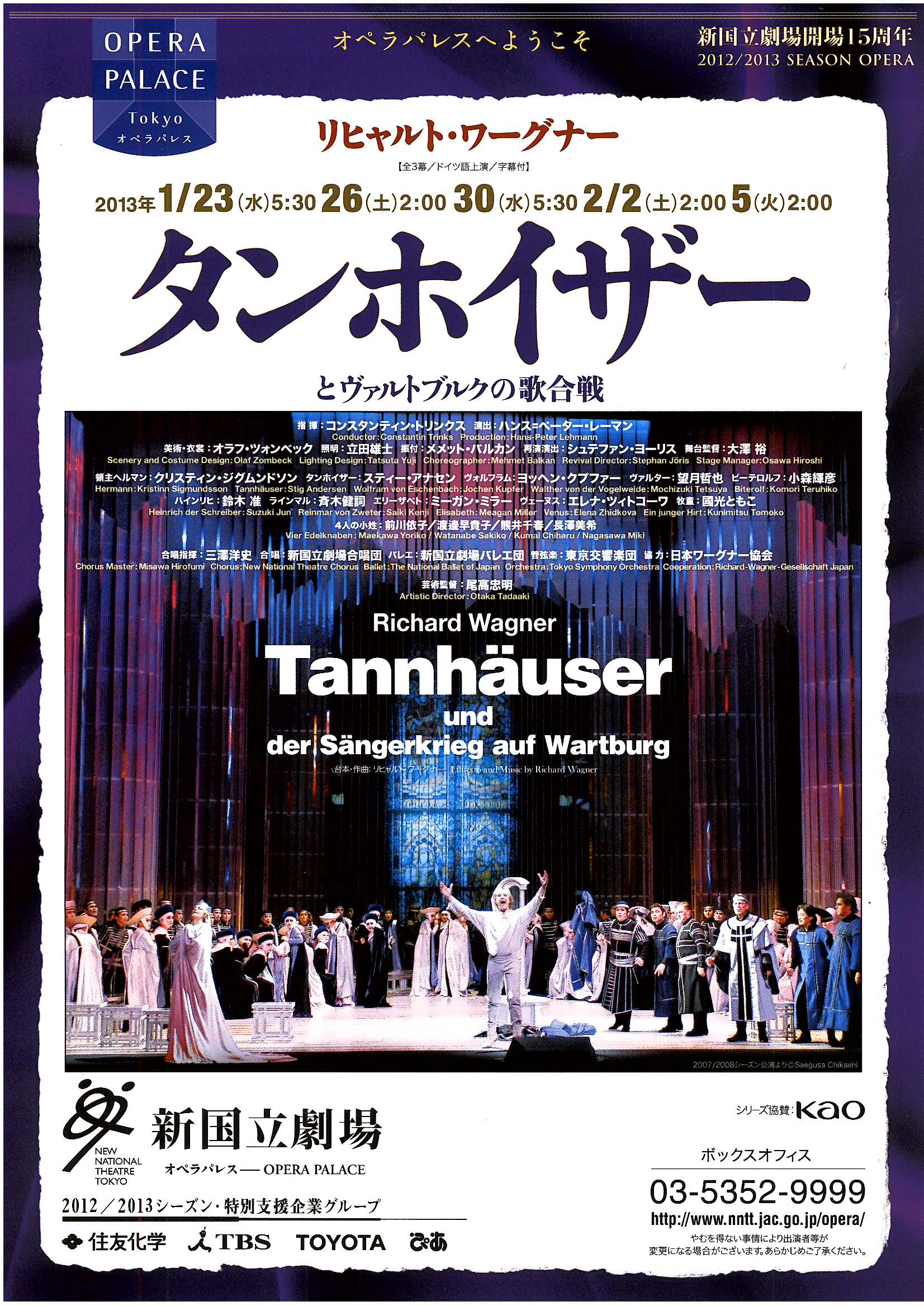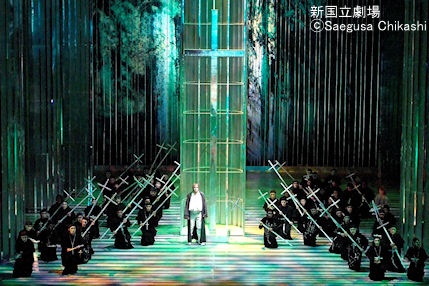
Tannhäuser und der Sängerkrieg auf Wartburg
- 2012/2013 Season
- Richard Wagner : Tannhäuser und der Sängerkrieg auf Wartburg
Opera in 3 Acts
Sung in German with Japanese Supertitles - OPERA HOUSE

PERFORMANCES
2013 Jan.23 26 30 Feb.2 5 Wed Sat Wed Sat Tue 5:30
2:00
*5:30
*2:00
*2:00
Digest movie
This will be a revival of Hans-Peter Lehmann's 2007 production. Mr. Lehmann has established himself as a pillar of the German opera world. In the 18th century, Mozart was composing operas in Italian, and by the 19th century Italian opera was in its golden age. With Tannhäuser, Richard Wagner took an initial step toward what would be called the Musikdrama (music drama), in what would be a break from the Italian opera tradition of the "number operas"*. Tannhäuser marks an important step in the process of perfecting the Musikdrama some years later, and we felt it fitting to perform it in celebration of the 200th anniversary of the composer's birth. Artistic Director Otaka Tadaaki has made his opinion known that he is not one for productions that end up being "reinterpretations that go too far", to the detriment of the original appeal of the music and storyline. This is why he has always kept close tabs on the direction that new NNTT Opera productions are taking during the creative process. This production was the season opener in 2007, when Wakasugi Hiroshi had just taken over as artistic director. The lucid and visually stunning production has become part of the NNTT Opera repertory, and proved itself to have a wide appeal across diverse audiences.
Stig Andersen will sing the challenging title role. Singing the role of Elisabeth will be Meagan Miller, a rising star with a radiant tone and charming stage presence. On the podium will be up-and-coming German conductor Constantin Trinks, who is also conducting La Boheme here in January 2012. Tannhäuser features a wonderful overture and plenty of sublime musical moments throughout. Audiences can look forward to the powerful ensemble work between the soloists and the chorus of male voices, and even a major ballet scene. The work is a fine embodiment of Wagner's aesthetic ideal of opera as Gesamtkunstwerk, or "all-embracing art form", and makes for a fitting choice for performance as we celebrate the bicentenary of his birth.
*Number operas: In traditional Italian opera, the score typically featured arias and ensemble pieces that could be performed independently of the larger work, and which were numbered sequentially.
- Buy Ticket
- Index
- Related Information
-
